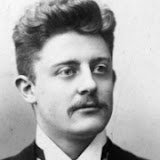About CTI
Corpus Toneelkritiek Interbellum (Flemish Theatre Reviews 1919-1939) is a research instrument that was set up for the "Mass Theatre in Flanders" research project, funded by FWO (Fonds voor Wetenschappelijk Onderzoek • Research Foundation–Flanders). The project is hosted at Universiteit Antwerpen.
Project Coordinator: dr. Thomas Crombez
Project Supervisors: prof. dr. Luk Van den Dries, prof. dr. Frank Peeters
Timeline and Composition
CTI was started in July 2008, aiming to collect a significant corpus of Flemish inter-war theatre criticism (ca. 1,000,000 words).
Currently the first and second stages of the project have been completed (October 2009). So far we have digitized over 680 documents, numbering 776,000 words. All texts are coded using the TEI P5 Guidelines, or TEILite to be precise. A number of items are tagged using TEI mark-up: names of dramatists, directors, writers, poets, and composers; titles of works; theatres and theatre companies.
The main critics of the inter-war period represent a significant portion of the documents included:
- Karel van de Woestijne
- Willem Putman
- Lode Monteyne
- Victor J. Brunclair
- August Monet
In addition, many (anonymous) reviews and essays were collected from newspapers, literary periodicals, and theatre journals. Examples include De Standaard, Hooger Leven, Het Vlaamsche Land, Averbode's Weekblad, Ons Volk Ontwaakt, De Ploeg, Tooneelgids (1921-1940), Tooneelleven (1934-1944), Pogen, Het Tooneel (1915-1940), Pelgrim, Het Vlaamsche Land, Jong Dietschland (1927-1933), and Ruimte.
Background
The Mass Theatre in Flanders research project aims to study sociotheatrical events from the interbellum period, but also the specific critical language that was developed to support and legitimize the mass spectacle movement. This brings up a number of questions. The salient antimodernism of reviews and essays on mass spectacle is yoked to surprisingly modernist and even avant-garde forms. Is mass spectacle primarily a symptom of nationalist antimodernism, or should it be interpreted as an expression of avant-garde hypermodernism?
These questions may only be answered from a detailed analysis of inter-war critical theatre discourse. The present state of research into early twentieth-century Flemish theatre is, however, unfavourable. There are no standard works on the history of Flemish theatre, and only a limited number of dissertations. On the other side, there is an almost unlimited supply of source materials. Countless documents were published during this vibrant episode of Flemish theatre, by its main spokesmen and their critics. But how to collect, let alone process such a vast collection of documents?
The goal of Corpus Toneelkritiek Interbellum is to provide a well-organized and fully indexed corpus of documents from Flemish theatre criticism of the interbellum period. Moreover, this collection takes advantage of recent advances in "digital humanities". Since more digital texts are available than ever before, the technology for indexing a large collection of documents has also become much more accessible -- see How it works.
How CTI is used
Corpus Toneelkritiek Interbellum serves a threefold purpose in relation to the research project on mass theatre. CTI is:
- a "private encyclopedia" on Flemish interbellum theatre, because it is a large and fully indexed collection of documents. On account of its size, any given author, director, or theatre company should be represented in the corpus at least once, and probably often enough to yield a sufficient number of relevant facts.
- a useful instrument to monitor the evolution of critical discourse. It will be used to trace the development of key terms, such as "expressionism," "avant-garde," and "constructivism."
- a testimony to the popularity of open-air theatre and mass spectacle during the interbellum period. For the research project on "Mass Theatre in Flanders," we not only need documents that explicitly concern these phenomena themselves, but we also want to know how such events are referenced in general criticism.

